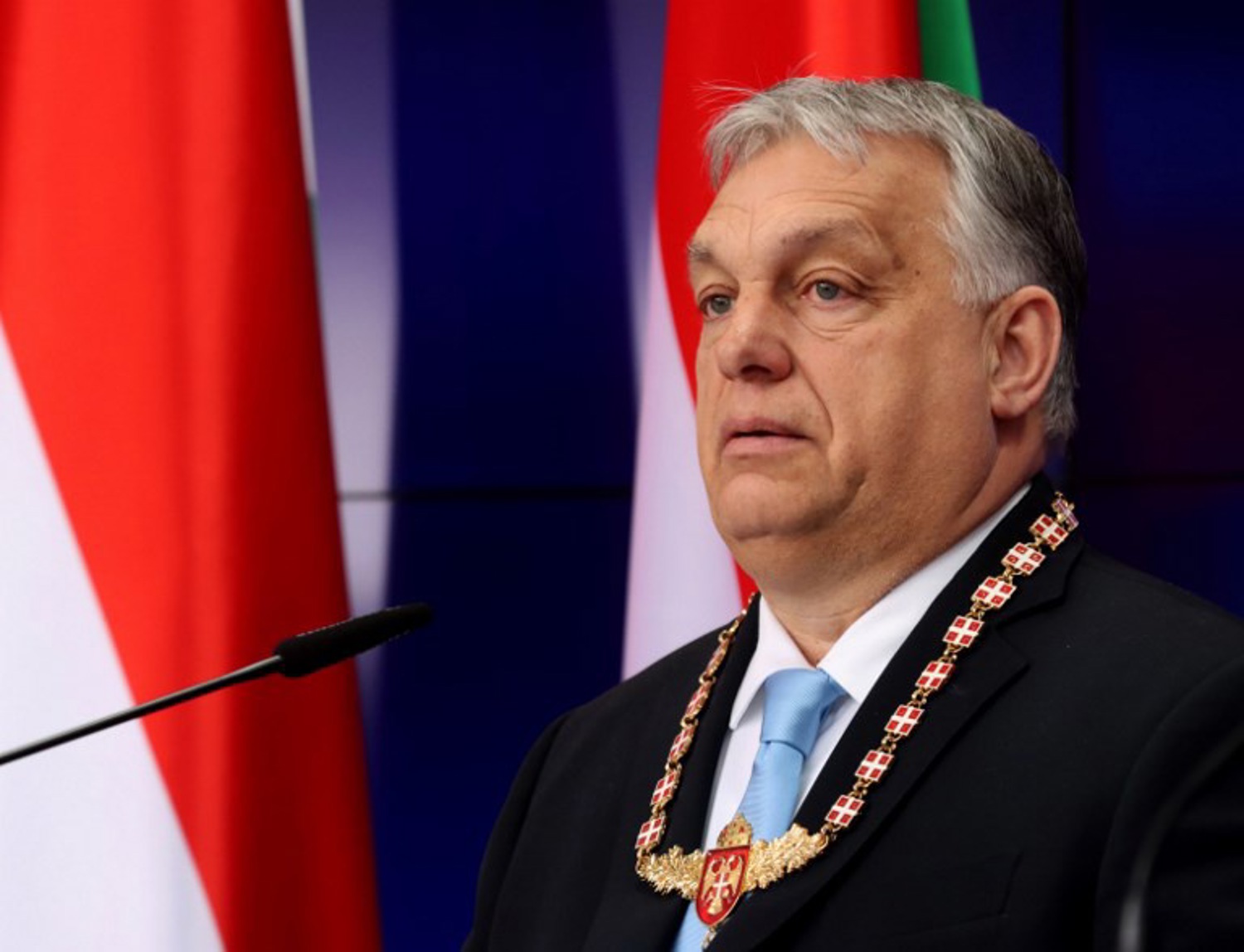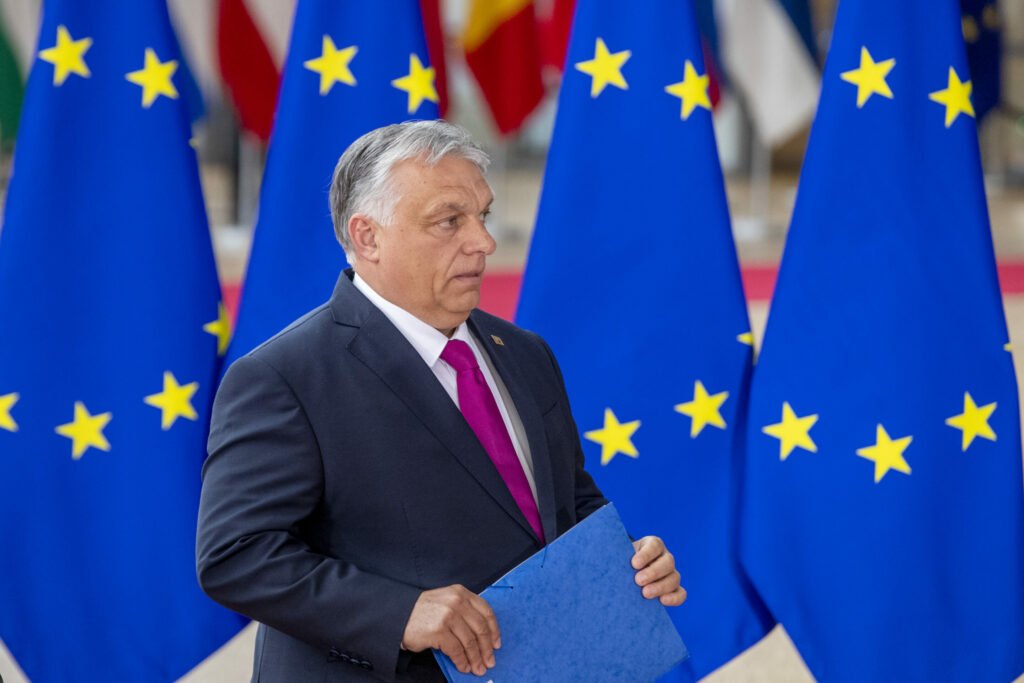Hungary was expected to adapt to its role as chair of the rotating EU Presidency during the second half of 2024, but continued to irritate the EU on migration policy and the protection of refugees from Ukraine last week.
The tidal waves have hardly subsided since Prime Minister Viktor Orbán's uncoordinated visit to Moscow at the start of Hungary's EU Presidency and the cancellation of the traditional meeting with the European Commission. While the EU denounced his visit as inconsistent with its position on Russia's war of aggression against Ukraine, it is cautious on the latest Hungarian announcements.
As already reported, Hungary has threatened to send asylum seekers to Brussels. "After the asylum procedure, we will offer all migrants at the Hungarian border the opportunity to be transported to Brussels voluntarily and free of charge," a minister in Orbán's office, Gergely Gulyás, said on Thursday. "If Brussels wants migrants, it can have them."
His announcement followed a judgement in June by the European Court of Justice. The Court ordered Hungary to pay a lump sum of €200 million and a penalty payment of €1 million per day of delay for failure to comply with a 2020 judgment on so-called transit zones on its southern border with Serbia, where asylum seekers were detained in difficult conditions.
The Court maintains that Hungary has not taken the necessary measures to comply with the 2020 judgment. Hungary's failure to fulfil the obligations undermines the principle of solidarity and fair sharing of responsibility between the Member States, the ruling concluded.

Hungarian PM Viktor Orbán. Credit: Belga
Asked about Hungary's announcement, a Commission spokesperson declined to comment and replied briefly that migration has to be managed in a human and effective way, in line with the new EU Asylum and Migration Pact. The European Commission adopted a common implementation plan for the Pact in June, with key milestones for all Member States.
Although the Hungarian government expected a negative ruling, it was surprised by what it considers to be an excessive fine, Mátyás Kohán, deputy editor at the Hungarian conservative weekly Mandiner, told The Brussels Times.
"Under current EU asylum law, asylum seekers are allowed to enter EU territory before their asylum application is processed. This has led to denied asylum applicants staying in the EU because they cannot easily be returned to other countries. This is a problem which Hungary deems entirely unnecessary."
In practice, Hungary can hardly send asylum seekers to Brussels. It is more a symbolic gesture intended to find a quick settlement between Hungary and the Commission, he added.

Ukraine's Independence Day was celebrated in Parc du Cinquantenaire in Brussels on 24 August. A poster next to the triumphal arch referred to the temporary protection status of refugees from Ukraine and listed housing, education, job, health and health care.
Hungary's decree on changing the criteria for state-subsidised accommodation for Ukrainian refugees has already entered into force (21 August), seemingly without any warning the Commission. Only people coming from regions listed by the Hungarian government as "war-affected areas" will qualify for subsidised accommodation.
The UN Refugee Agency, UNHCR, estimated that between 2,000 and 3,000 refugees will lose access to subsidised accommodation. This might be a violation of the temporary protection status that the EU granted to refugees fleeing the war in Ukraine and seeking shelter in EU Member States. A Commission spokesperson commented that it is aware about the decree and is looking into its legality.
"We will ensure their protection status for as long as it takes," the spokesperson said. According to the spokesperson, the protection status implies that refugees from Ukraine have access to the right of residency, the labour market, accommodation, social welfare and healthcare.
The decision to restrict government housing assistance to those fleeing the immediate war zones in Ukraine is geared towards increasing employment and decreasing welfare dependency, explained Mátyás Kohán. The assistance amounts to around €380 per month and therefore discouraged refugees to find employment.
Roma refugees 'disproportionately affected'
The tightening of housing subsidy rules applies to everyone coming from outside war zones but seems to affect Roma refugees disproportionately. Most non-Roma Hungarians in Transcarpathia had already obtained Hungarian citizenship before the war, and were therefore not covered by the housing subsidy.
"Regardless of the official reasoning, the new decree clearly and disproportionately affects the already marginalised Roma refugees who now face homelessness," Zeljko Jovanovic, President of the Roma Foundation for Europe, commented. "On the day the decree entered into force, there were evictions of approximately 120 Roma, mostly women and children."
"The majority of Roma from areas that were affected by the war fled to Zakarpattia in the western part of Ukraine, living in housing from relatives or friends that left Ukraine," he explained. Only a quarter of the displaced Roma in the region had access to registration, creating barriers to assistance and shelter.
According to Hungarian Roma-led organisations, between 2,000 and 3,000 Roma from the Zakarpattia region have fled to Hungary since the war started, mostly women and children who only speak Hungarian. As they often lack proper documentation, they are unable to obtain Hungarian citizenship and find themselves in an acute crisis after the Hungarian government's decree.
M. Apelblat
The Brussels Times

